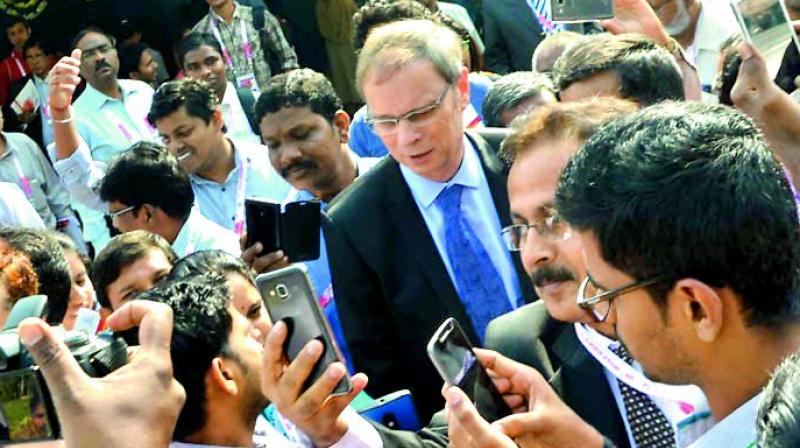Digital data is not secure yet, economics Nobel winner cautions Indian govt
Online platforms are not investing enough to make the digital transactions secure, says Professor Jean Tirole.

Tirupati: At a time when India is pulling all stops to make its economy cashless, Nobel Prize winner in economics Professor Jean Tirole has a word of caution for the Indian government: Online platforms are not investing enough to make the digital transactions secure.
“Digital economy is full of opportunities and creates wealth. At the same time, a lot of difficulties will come with it. We will be spied upon by many platforms,” said Prof. Tirole. Apart from this, he said there are issues relating to privacy, data collection and its use.
While many online platforms collect enormous data from us as we use their websites or apps, they are not investing enough to secure the data from hackers.
“Sometimes we are not rational. I give my consent when I am in rush to buy on a certain website. I don’t even read the terms and conditions. To be honest, even if I read this, I don’t even know what the consequences are. Being impatient it might be going against my own interest as we are not sure about the contracted resale of data and non-respect of right to oblivion,” he said.
“The same data that companies like Google, Facebook, etc store about us can be used against us if it was sold to insurance companies as they could increase premium if we have any health problems.”
Prof Tirole is from Toulouse School of Economics in France. He was awarded the Nobel Memorial Prize in Economic Sciences in 2014 for his analysis of market power and the regulation of natural monopolies.
He warned people that disruptive changes that technology could bring in has become faster than ever before. “Digital economy, artificial intelligence and robotics can destroy the jobs. But they can also create a lot of jobs. This is not a new phenomenon. Workers protested when machines replac-ed humans in 19th Century. The only difference between then and now is that the speed at which it happens. So we have to invent solutions.”
Explaining further, he said there is no shortage of jobs but there would be shortage of jobs that people want. “So the solution lies in people getting adapted to the new situation.”
“Think of a Uber driver. He doesn’t set prices any longer. Uber decides everything. But at the same time, Uber driver is independent to decide on workload and location of work,” Prof Tirole said.

